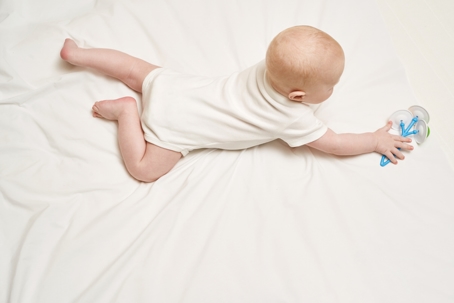Spinal cord injuries in newborns, although rare, are severe medical conditions that can have lifelong consequences. These injuries occur when there is damage to the spinal cord during the birthing process, which can lead to a range of physical and neurological challenges.
The prevalence of neonatal spinal cord injuries is not as high as in other age groups, but the impact on affected families is profound.
Signs of Spinal Cord Injuries After Birth
Difficulty Breathing or Respiratory Failure
Spinal cord injuries can severely affect a newborn's respiratory system, leading to difficulty breathing or even respiratory failure. The spinal cord is critical in sending signals to the muscles that control breathing. When these pathways are disrupted, the infant may struggle to breathe on their own, which can be life-threatening. Early detection and treatment of respiratory issues are vital to the survival and health of infants with spinal cord injuries.
Need for Ventilatory Support
In cases of severe spinal cord injury, newborns may require ventilatory support to assist with breathing. Mechanical ventilation is often a necessary intervention to ensure that the baby receives adequate oxygen and maintains proper respiratory function. The need for such support is a clear indicator of the severity of the spinal cord injury and underscores the importance of specialized medical care for these infants.
Absent or Reduced Response to Touch
Infants with spinal cord injuries may exhibit an absent or reduced response to touch, which can be a critical symptom of sensory nerve damage. When a baby does not react to tactile stimuli in the expected way, it suggests that the sensory pathways in the spinal cord may be compromised. This lack of normal response is concerning and should prompt further neurological evaluation to understand the full extent of the injury and its implications for the child's development.
Inconsistency in Pain Perception
Another sensory-related symptom is an inconsistency in pain perception. Some infants may exhibit heightened sensitivity to pain, while others may not react to pain at all. This altered pain response can be perplexing for parents and caregivers and requires careful assessment by medical professionals. Understanding and managing pain in infants with spinal cord injuries is crucial for their comfort and overall well-being.
Bowel and Bladder Dysfunction
Spinal cord injuries can disrupt the normal function of the bowel and bladder, leading to incontinence or retention issues. These dysfunctions can pose significant challenges for the infant and caregivers alike, as they can lead to discomfort and an increased risk of infection. Monitoring and managing these symptoms are essential for maintaining the health and hygiene of the affected newborn.
Physical Signs
Weakness or Paralysis of Limbs
Following a spinal cord injury, the newborn may have little or no movement of one or more of their limbs. In some cases, this may affect just the legs, while in others all four limbs may be affected. Which limbs are affected, and to what degree, will depend on the severity and location of the spinal cord injury.
Abnormal Posture or Limb Positioning
Physical anomalies such as abnormal posture or limb positioning can be outward indicators of spinal cord damage in newborns. Twisted or bent limbs that do not align with typical newborn positioning may signal an underlying injury that requires medical evaluation. These unusual physical signs can provide important clues to healthcare professionals as they assess the infant's condition and plan for appropriate treatment.
Visible Swelling or Bruising Along the Spine
External signs like visible swelling or bruising along the spine can also suggest a spinal cord injury. Such manifestations should be taken seriously, as they can indicate trauma to the spinal area. A thorough examination by a medical professional is necessary to determine the cause of these physical signs and to assess the potential for spinal cord involvement.
Contact Our Attorneys at Daniel, Holoman & Associates LLP
If you suspect your newborn may have suffered a spinal cord injury, it is crucial to seek immediate medical attention. And when you are ready to talk to a lawyer, we are here to listen. At Daniel, Holoman & Associates LLP, we understand the complexities and sensitivities involved in these cases. Our experienced personal injury attorneys are dedicated to helping families navigate the legal aspects of medical negligence and birth injuries.
Contact us today to learn how we can support you through this challenging time and ensure that your child receives the care and compensation they deserve. (866) 380-2281

